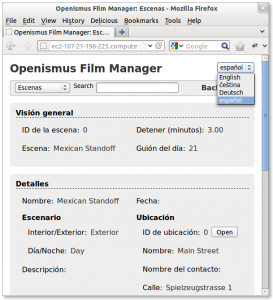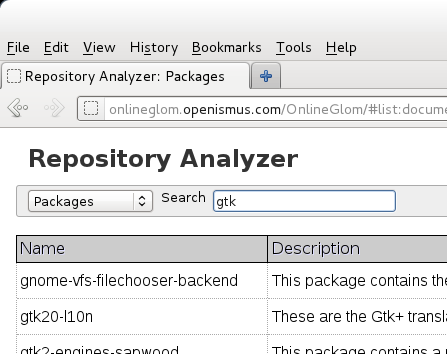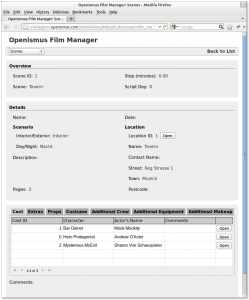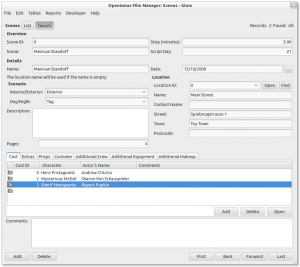Building gwt-glom
At least on Ubuntu, it’s now easy to build and test gwt-glom. You can just do:
$ sudo apt-add-repository ppa:openismus-team/openismus-glom-unstable
$ sudo apt-get install default-jdk maven2 libjava-libglom-java glom-utils
$ git clone git://gitorious.org/online-glom/gwt-glom.git
$ cd gwt-glom
$ mvn gwt:run
This opens the GWT Development Mode GUI, which serves gwt-glom via jetty and lets you see it in your browser.
Chrome is the most likely to have the gwt plugin that you need for development mode, though it’s available for some versions of Firefox.
How we made it this easy
GWT projects, like other Java projects, typically use maven (mvn) for their build system. maven is nothing like autotools.
Maven usually downloads dependencies automatically, either from the central maven repository, from some (maybe private) other maven repository that you specify. This sounds unstable, but you specify exact version numbers, so you can be sure that your project will continue to build. So maven doesn’t have the separation of building and packaging that I’m used to in the C/C++/autotools world. It feels odd to me, but I’m going with the flow.
However, java-libglom uses JNI to provide a Java API around a C++ (libglom) API, so it uses both Java (architecture-independent) and C++ (compiled and linked for particular architectures).
java-libglom installs a native shared libary. We packaged that for Ubuntu in our Glom PPA (stable and unstable) as libjava-libglom-java so you can install it easily.
java-libglom also creates .pom and .jar files (for the API, the sources, and the javadoc). These are in the central maven repository so maven can just download the .jar.
That libjava-libglom-java Ubuntu package also installs the .pom and .jar files that maven needs, but those are only useful for mvn-debian, which is apparently only useful for building other Debian/Ubuntu packages. There is no apparently no way to using mvn-debian’s local repository while also using the central maven repository for other stuff.
Java with autotools
By the way, java-libglom uses autotools, although the autotools Java support is barely useful and limiting, so we have custom rules for most stuff. However, autotools does let us generate the Java and C++ files from swig, and build the native shared library. That seemed harder to do with maven, though maven would have made it easier to deal with the generated Java code.
I do like how maven just defaults to using your .java files, and test ,java files properly if you put them in the correct places. For instance, see the maven quickstart project.



